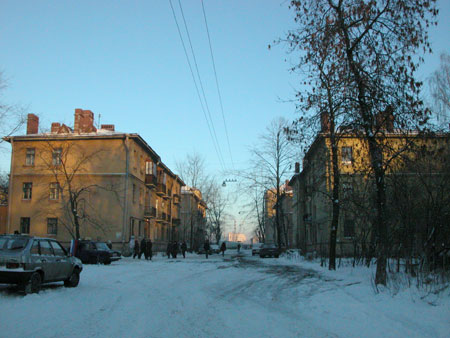The other day it was snowing lightly early in the morning and Natalie stood by the window bursting with energy and excitement: "It's snowing for the second time and it's only November, and this time it's real snow, unlike the snow in October."
Perplexed, I asked "What do you mean?"
"Well," she says, "In October the flakes were to big and wet, but these are small and snowy." As she bounced along in seventh heaven, it occurred to me that she had absolutely no idea that the financial world was imploding around her, and that this was entirely as it should be and it meant I was doing my job right.
Nor did I understand much, when I was her age and even much older. I remember lines along Airport Road to get gas back during the gas crisis in '74, but I thought that was normal. I remember in 1979-1980 reading about how American competitiveness was suffering next to Japanese and German industry, but it was all very abstract and didn't really concern me. I vaguely remember Son of Sam, but I fully remember Fernwood Tonight and David Letterman's daytime show.
It is only now that the economics of the late 70s and early 80s have come into focus for me. And so, in 1981, in the midst of a recession, after her business was destroyed by the Reagan election, with a husband who'd sooner pull into the driveway in a surprise sports car than contribute to paying the bills, it seemed entirely natural to me that my mom should send both her kids to England, then Switzerland, including the Diana-Charles wedding. And only now do I understand what it took to pull the trigger and assume the cost of sending us over there, and what it meant from an "asset allocation" perspective.
Chew Your Grouse
Eat your pineapples, Chew your grouse, Your last day is coming, You bourgeois louse. -Mayakovsky, 1913 |  |
And when, after the Revolution, Mayakovsky channeled his dynamism into an inferior body of work that nonetheless captured the real excitement of the era, that was cool too. Here's a passage from his 1928 poem "The Story of the Pipe-Fitter Ivan Kozyrev, Upon Moving into his New Apartment"
Vse khorosho. No bol'she vsego mne ponravilos' -- eto: eto belee lunnogo sveta, udobnej, chem zemlia obetovannaia, eto -- da chto govorit' ob etom, eto -- vannaia. | It's all good. But what pleased me most of all is -- that: that whiter then the light of the moon, cozier, than the promised land that -- and what more is there to say about it, that -- bathroom |
2008
At the other end of the spectrum, America came over the course of recent decades to believe that Granite countertops and manifest destiny were in their own way interchangeable. The chicken in every pot had to be free-range and the pot Williams Sonoma.
And yet, if I look back to 1981 and compare how we live now to how we lived then, in every way we live better, and no matter what the indices do in coming weeks and months, all of that's unlikely to evaporate. We will still have the internet, and netflix, and extra virgin olive oil, and sriracha, and cars that hardly ever break down, and better math instruction, and so on. With good leadership in the White House, there's hope for progress of some sort, if not immediate economic solutions.
And so I find myself at peace in the land of Cheever, and find that the perpetuation of the middle class -- what was called "reproduction of the social means of production" during my Marxist phase -- is as high a calling as you'll find.
But it's also a pain in the ass.

3 comments:
Hey Ward, aren't you being a little hard on the Beaver?
Perpetuation of the middle class is a high calling? Fascinating stuff. It is certainly hard, once you're in the middle of it. Hard to keep working, hard to save, hard to help others who are less productive. It doesn't always feel like a high calling, or a high enough calling. But I think you're right. Grander ambitions are generally ego-driven. I wrote this, I led this, I started that idea! Me, me, me.
Ohhh Mayakovsky. Ahhh Mayakovsky. He's amazing. You describe him well, but I'm about to give a paper at the convention on "'Pro eto' as a Buddhist poem." That's how amazing he is.
-Keti
Post a Comment